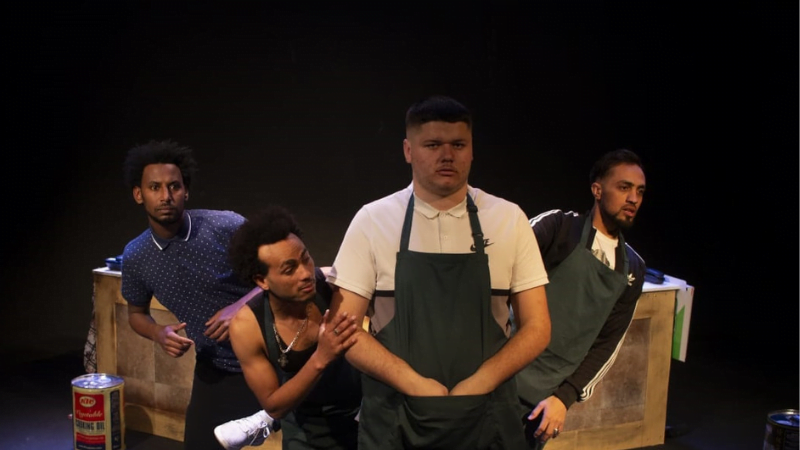It was going to be their first performance outside the UK with Phosphoros, a theatre company for refugees set up in 2015. But their hopes were crushed at the airport, as their documents were scrutinised in a lengthy “interrogation” that ended in rejection.
In an interview with The Shift News, they explain that three of the four actors were denied entry for the wrong reasons, harshly criticising the “lack of knowledge” shown and the hostile treatment they faced.
“Without even setting foot on Maltese soil, our cast was made to feel they were suspects, interrogated relentlessly and judged on arbitrary, discretionary criteria which only served to show bias and contempt towards refugees,” they said.
As “a theatre company using the arts to make a political point”, Phosphoros actors liken their role to that of journalists in terms of speaking truth to power.
They expressed concern that Malta was heading in the same direction as other countries in the Mediterranean, such as Italy, turning their backs on common decency and descending into nativism and hatred.
“Society cannot be deemed tolerant and open if it closes its doors to others and if it denies artists the platform to share important work,” Phosphoros said.
The bitter experience they faced occurred only days after President Marie-Louise Coleiro Preca spoke of Malta’s humanitarian approach to refugees at the Oxford Union. “We are citizens of one world…Borders and frontiers are ridiculous,” she told her Oxford audience.
These are empty words for the refugee actors who never made it into the country: “We’re sorry to tell her that this is not the case”.
They were asked to participate in the recent Lost in Migration conference organised by the President’s Foundation for the Wellbeing of Society and Missing Children Europe.
They were also scheduled to perform their latest show, ‘Pizza Shop Heroes’, at Spazju Kreattiv. In the autobiographical play, the four young men recount their own traumatic journeys from Afghanistan, Eritrea and Albania, including days on the Mediterranean in a crowded dinghy.
Having been invited to a conference by the President’s foundation specifically dealing with problems facing children in migration, the disappointment still felt by these actors – who were once these very children – is evident.
“We were proud to be attending the conference…[with] the President’s foundation’s blessing,” they said. “This would have been the first time we would have travelled outside of the UK to perform”.
It would have also been the first time the refugees could travel with the right paper work. But it was precisely this paper work that became a controversial stumbling block.
Where it all went wrong
They arrived at Heathrow Airport, where Air Malta staff checked their documents for three hours. The actors insist their documents were valid, even though they were denied entry into Malta.
Three of the actors were travelling with a Refugee Convention Travel Document (TD), one with a Home Office Certificate of Travel (COT), and a letter from the President’s Foundation outlining the details of the trip and document reference numbers.
The actors said that at the end of their lengthy interrogation, Air Malta staff said all four needed visas. This, they said, showed a lack of adherence to international guidelines on people travelling with TDs.
“Air Malta was saying they needed visas from their countries of origin, so (for example), they’d be travelling to Malta as an Eritrean national with a visa, instead of a refugee from Britain. This is incorrect and demonstrates a lack of awareness and a system unfit for purpose,” the company said.
They complained about the way they were treated, saying staff were rude and doors were slammed. The play’s director was called “arrogant” when asking to speak to the manager’s superior, they said.
Denied access to their flight, they were forced to find overnight accommodation, an expense they had to cover.
The next day, Air Malta back tracked, confirming what the actors already knew: TD holders did not need visas. Three of the actors with these documents were prevented from boarding the flight for the wrong reason, they insisted.
“This was a completely unjustified and incorrect decision by Air Malta,” they said.
The COT was, however, rejected on the basis of phone calls between Air Malta and the Maltese immigration authorities. “But they refused to put this in writing, and we have found no information in the public domain to categorically support this,” the actors said.
Their subsequent requests for clarification from both the airline and Malta immigration authorities have so far not led to action. Phosphoros said the company was following formal complaint procedures with Air Malta, adding that they have yet to be contacted by immigration authorities.













